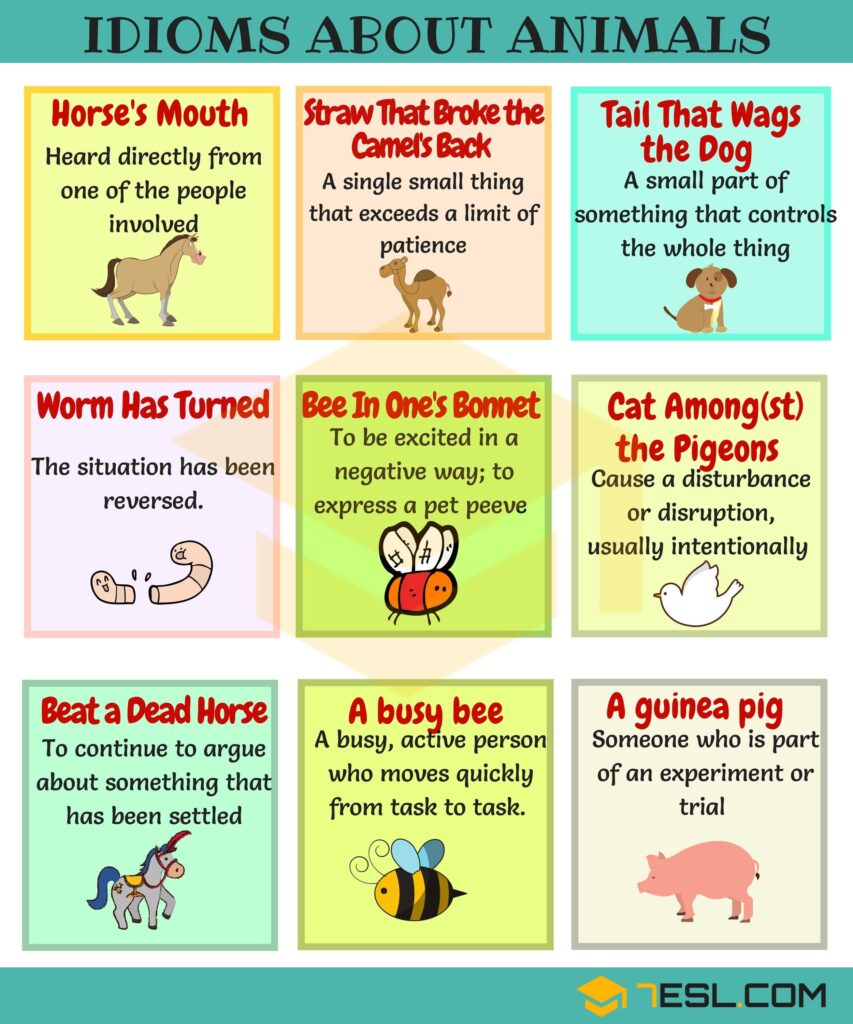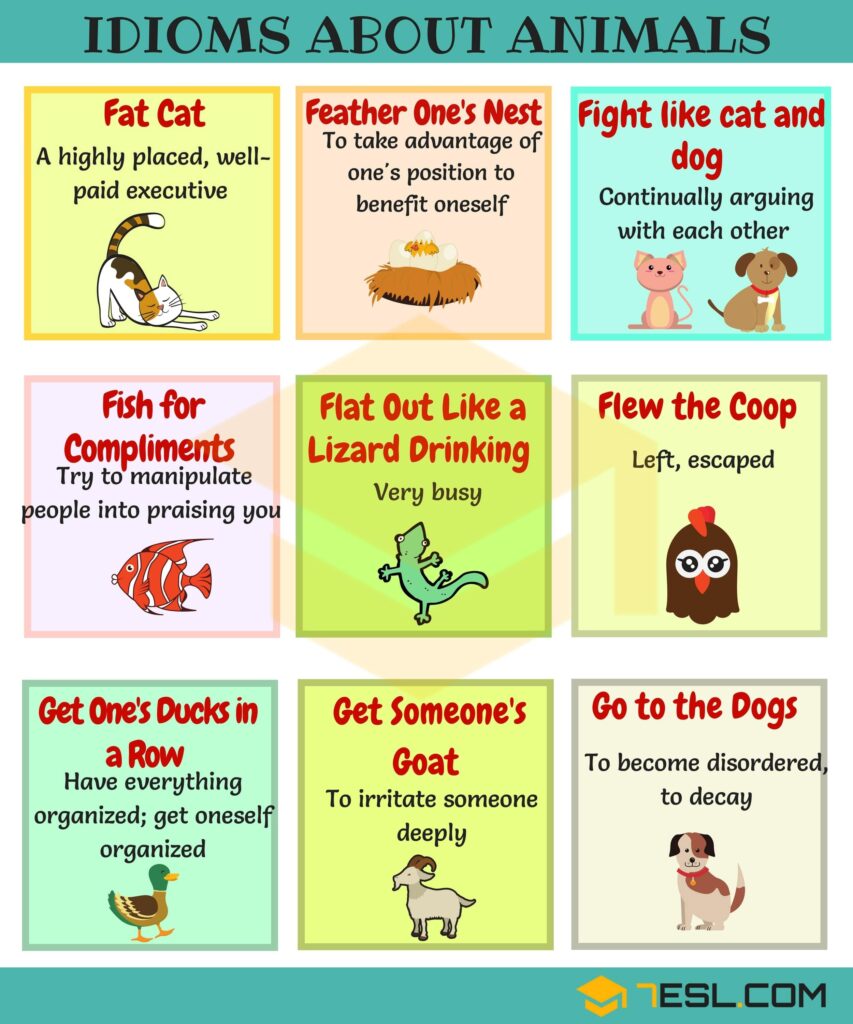Idioms with Animals. Common English phrasal verbs. English grammar with exercises. Free eBook and Free printable PDF.
Idioms with Animals

Idioms with Animals
An idiom is a phrase or group of words that, when taken together, has a meaning that is different from that of each individual word. To put it another way: idioms cannot be understood literally.
Idioms are very important when learning English because they are used a lot in everyday communication and can help you sound more like a native. To speak and understand conversational English better, learning the correct use of idioms is essential. Idioms also help give character to the language; making it more colourful and interesting.





Exercises
Idioms with animals
ANIMAL RELATED IDIOMS
EXERCISE 1.
Insert the appropriate name of the animals in the box for each sentence.
BEE BUTTERFLY CAT DOG SNAIL
WOLF BIRD DOG RAT SHEEP
E.g. This place used to be good. It’s really gone to the dogs.
- If I go to the shops to buy bread, I can post this letter too. That way I can kill two …………… with one stone.
- I’m really nervous about the wedding. I’ve got ……………… in my stomach.
- Those two are always fighting! They lead a real …………… and ……… life.
- There is something suspicious about that man. I smell a …………..
- He pretends to be nice and kind but I’m not so sure. I think he’s a …………. in ……………………. clothing.
- He’s in a terrible mood. He seems to have a ……….. in his bonnet.
- The athlete who came last in the race, went at a ……………… pace from start to finish.
EXERCISE 2.
Explain the meaning of the following idioms.
- To take the bull by the horns.
- To take donkey’s years.
- To have ants in your pants.
- As the crow flies.
- No room to swing a cat.

BROWSE THE EBOOK ONLINE OR DOWNLOAD THE PDF FOR FREE

All downloads are in PDF format





